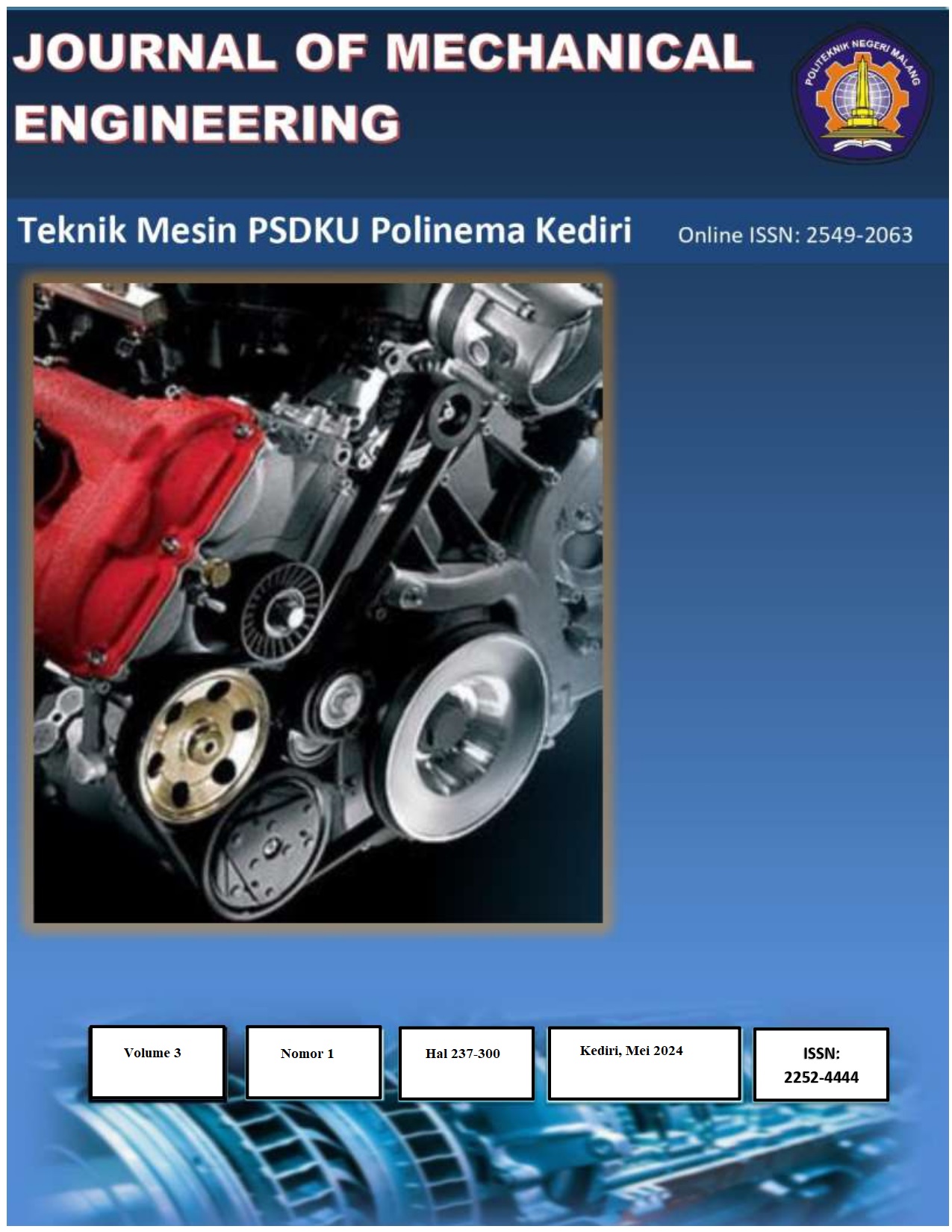PENGARUH PERUBAHAN IGNITION TIMING TERHADAP EMISI GAS BUANG PADA MOBIL URBAN KEN AROK BERBAHAN BAKAR ETHANOL E100
EFFECT OF IGNITION TIMING CHANGES ON EXHAUST EMISSIONS IN KEN AROK URBAN CAR FUELED BY ETHANOL E100
DOI:
https://doi.org/10.33795/j-meeg.v3i1.3947Keywords:
exhaust emissions, ethanol, ignition timingAbstract
The depletion of fossil fuel reserves, as well as the increasing air pollution that occurs in Indonesia, greatly affects the energy crisis. This study aims to test, analyze, and determine the right ignition timing and injection timing so as to reduce HC and CO exhaust emissions pollution with E100 ethanol fuel. The test method in this study uses ignition timing independent variables (10.5⁰, 12.5⁰, 14.5⁰, 16.5⁰) and is carried out at 1500, 2000, 3000, 4000 RPM engine speed. The results of this study can be seen that the ignition timing variable has an influence on HC and CO exhaust emissions. at 1500 RPM rotation, the lowest HC and CO exhaust emissions are obtained at 16.5⁰ ignition timing with a value of HC 260 ppm and CO 0.12%. Then for the highest exhaust gas results there is at 12.5⁰ ignition timing with a value of HC 310 ppm and CO 0.16%.




